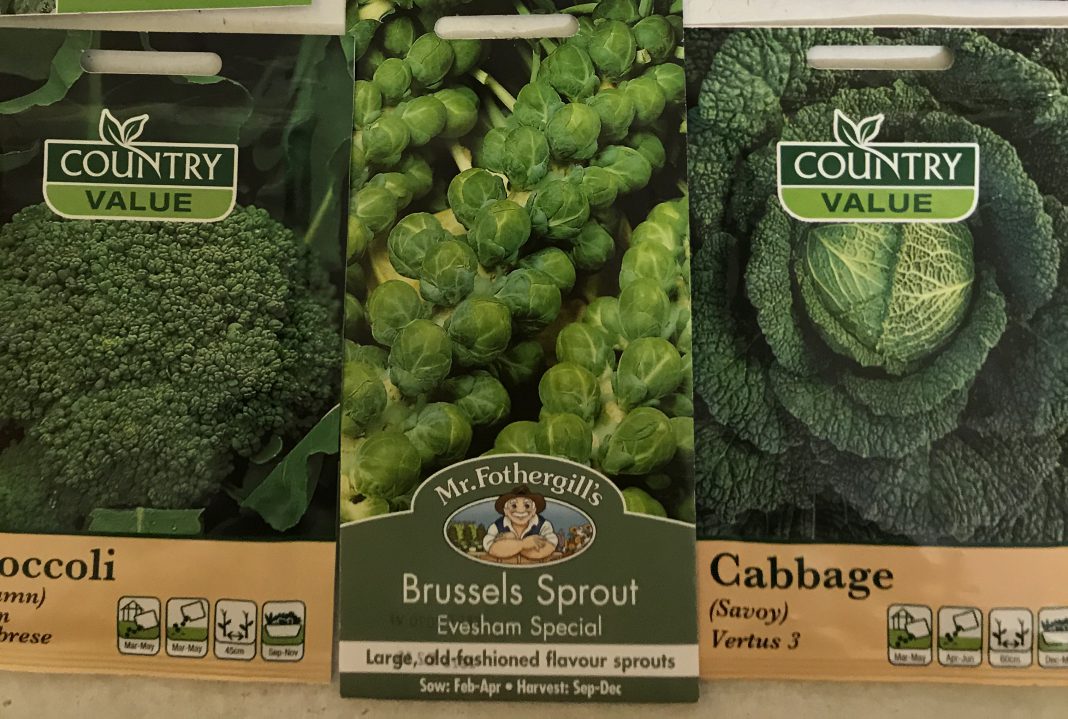While the weather has kept most gardeners out of the garden, you can still plan for the coming year by buying and growing seeds. Seeds can be planted in trays or in pots and placed in the greenhouse, in a propagator, or on windowsills.
I find brassicas are best because you can have fresh vegetables out of the garden all the year round. Brassicas are a family of crops that are very varied – they include all the cabbages and cauliflowers, turnips, broccoli and calabrese, brussels sprouts and kales.
It is possible to harvest delicious cabbages for 12 months starting with quick maturing varieties such as Greyhound, which will be ready to harvest in June, or you can pick them earlier as spring greens. Golden Acre, with its medium-sized rounded heads, is also a good variety of early cabbage.
One of the hardiest types of cabbage is the winter Savoy cabbages, which are ready to harvest from November to January – the January King 3 cabbage produces flat and solid heads tinged with red. Another good hardy winter Savoy is the Ormskirk Rearguard. In addition to the Savoys there is the Dutch-type Winter White cabbage. And don’t forget red cabbage, as among its many uses is that it is ideal for pickling.
Spring Hero is most definitely a cabbage to harvest in May and June and plant the seed in the previous September. Types of cauliflowers can also be grown all the year round. The Walcheren Winter matures from June to October and is a very hardy and frost resistant variety of cauliflower.
Broccoli, like cabbage and cauliflower is a brassica. Purple Sprouting is a well proven variety with delicious tender shoots. You either love or you hate them, but Brussels Sprouts can be picked in the winter. Kale is the workhorse of the winter garden and no vegetable is hardier than dwarf curly kale.
All brassicas have a similar nutritional value and are often referred to as superfoods, but when growing growing brassicas you also need to consider pests. Firstly there is the flea beetle that liked to eat the seedlings and young plants, but the most common garden pests are slugs and once the plants have matured, be wary of caterpillars. You can control them with insecticide. If you do not want to use insecticide there are slug traps.
To deter flea beetles you can try dragging a piece of rag covered in tar between the plants – the flea beetle jumps off the cabbage and on to the rag and sticks to it. To catch caterpillars you need to inspect the plants daily and collect and dispose of them.
Rabbits and pigeons will always be attracted to brassicas. To deter rabbits, place a small wire mesh around the plants and dig it into the soil – though I have found rabbits can jump over a four foot wire. To deter pigeons, hanging any old CDs or DVDs above the cabbages usually does the trick.
Image Credits: Dennis Leeds-George .



